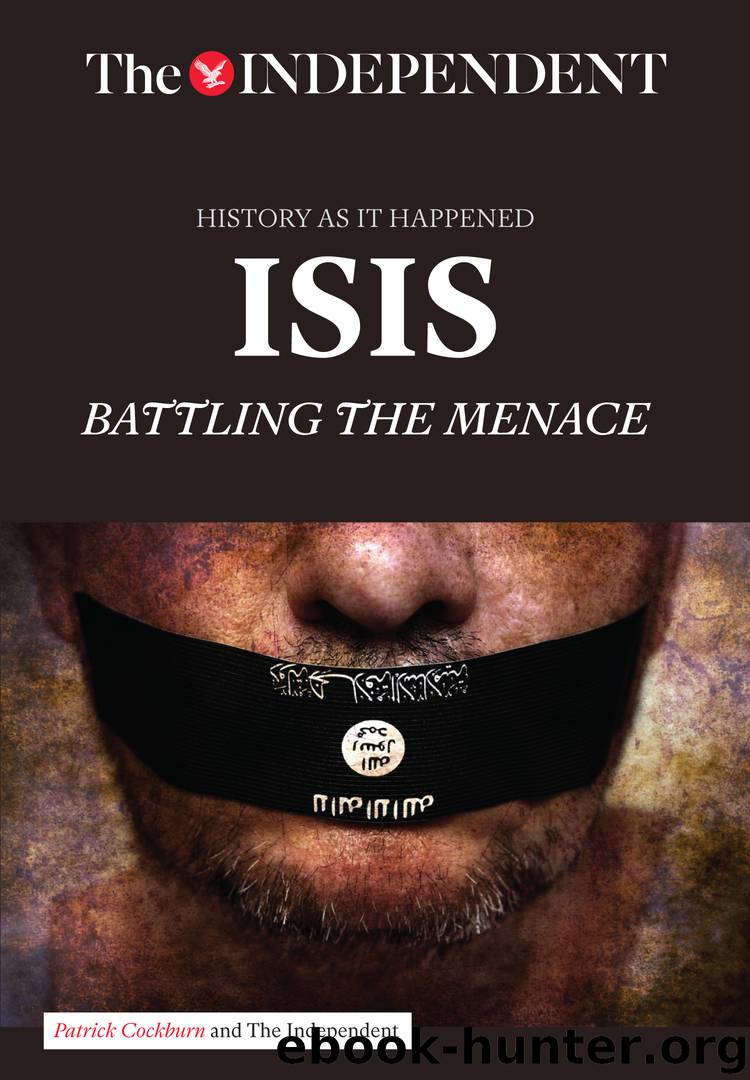ISIS by Patrick Cockburn

Author:Patrick Cockburn [Cockburn, Patrick]
Language: eng
Format: epub
Publisher: Mango Media
Published: 2016-09-13T04:00:00+00:00
Friday, 20 March 2015
THE DIVIDE THAT LETS TERROR RULE
The Islamic State still rules most of the territories it captured last year in Iraq and Syria. It may no longer be expanding, but it is little diminished, despite 2,500 US air strikes hitting its military forces and economic infrastructure.
The much-heralded offensive by some 25,000 Iraqi government forces aimed at recapturing the small city of Tikrit has come to a halt over the past week, though American officials say the city is held by only a few hundred Isis fighters. The faltering assault, though it may ultimately succeed, bodes ill for plans to recapture the much larger city of Mosul later in the year.
The battle for Tikrit illustrates one of the great strengths of Isis: the divisions of its many enemies.
In this case, the attack force is made up of 20,000 Shia militia armed and directed by Iran. There are only 3,000 Iraqi army soldiers. The US says it is not supporting the advance with air strikes because it has not been asked to do so.
It is also concerned about its aircraft becoming the flying artillery for anti-Sunni sectarian cleansing by Shia militias. Iran and the US may both be combating the so-called Islamic State, but they are conducting very different wars. Consequently, Tikrit has been a long time falling despite Isis being so wholly outnumbered.
Preservation of Isis depends on its powers of resistance and the strength of the forces battering at its outer defences. The inability so far of the US-led coalition, including the UK, France, Saudi Arabia and other regional powers, to win victories against Isis, is explained by failures that are political rather than military.
Crucially, the US and its allies are not giving air support to the Shia militias and the Syrian army which are the two largest ground forces opposing Isis.
The importance of ground-air cooperation was made plain by the siege of the Syrian-Kurdish town of Kobani which Isis failed to take thanks to cooperation between Syrian Kurdish fighters and American aircraft which carried out 700 air strikes. Likewise, in Iraq the only place where the US and its allies were able to help drive back Isis was in Sinjar, where their aircraft were cooperating with Iraqi Kurdish Peshmerga.
The Islamic State can probably hold out against attacks from a US-backed coalition or an Iranian backed one if each fights separately, but not against a combination of the two. American and western European leaders may feel that they have done enough to pen Isis into the admittedly vast area it conquered last year. Certainly, it has made no significant advances since last October and has lost some territory, but the belief that it can safely be left to its own barbaric devices is short-sighted. The Islamic State is not going to implode because of mounting popular discontent within its borders. Its enemies may deride its pretensions to be a real state, but in terms of the ability to conscript troops, raise taxes and impose its brutal variant of Islam, it is stronger than many neighbouring countries.
Download
This site does not store any files on its server. We only index and link to content provided by other sites. Please contact the content providers to delete copyright contents if any and email us, we'll remove relevant links or contents immediately.
| Anthropology | Archaeology |
| Philosophy | Politics & Government |
| Social Sciences | Sociology |
| Women's Studies |
The Secret History by Donna Tartt(19002)
The Social Justice Warrior Handbook by Lisa De Pasquale(12177)
Thirteen Reasons Why by Jay Asher(8874)
This Is How You Lose Her by Junot Diaz(6857)
Weapons of Math Destruction by Cathy O'Neil(6249)
Zero to One by Peter Thiel(5768)
Beartown by Fredrik Backman(5718)
The Myth of the Strong Leader by Archie Brown(5482)
The Fire Next Time by James Baldwin(5409)
How Democracies Die by Steven Levitsky & Daniel Ziblatt(5200)
Promise Me, Dad by Joe Biden(5132)
Stone's Rules by Roger Stone(5065)
A Higher Loyalty: Truth, Lies, and Leadership by James Comey(4939)
100 Deadly Skills by Clint Emerson(4901)
Rise and Kill First by Ronen Bergman(4761)
Secrecy World by Jake Bernstein(4727)
The David Icke Guide to the Global Conspiracy (and how to end it) by David Icke(4685)
The Farm by Tom Rob Smith(4489)
The Doomsday Machine by Daniel Ellsberg(4474)
